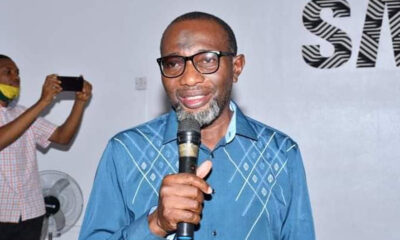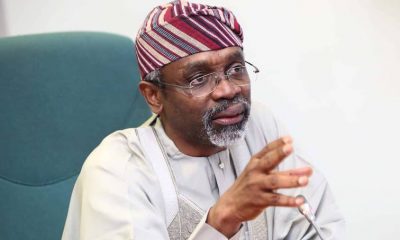Education
Students loan begins Jan 2024, no need for lobby – Gbajabiamila
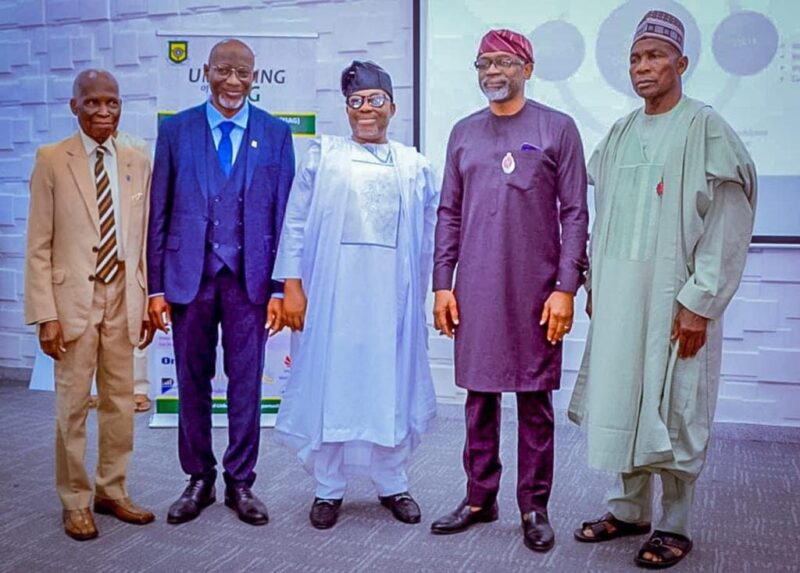
Students loan begins Jan 2024, no need for lobby – Gbajabiamila
Efforts are underway to ensure the commencement of the Students’ Loan Scheme in January 2024, Chief of Staff to the President, Femi Gbajabiamila, has said.
He also said Nigerian students would need no lobby to access the loans “to fund their educational aspirations”.
He spoke in Lagos on Friday while delivering a lecture titled, “Empowering Nigerian Youths in the Present Day Economy” at the 35th convocation ceremony of Yaba College of Technology (YABATECH).
Gbajabiamila said to make the process seamless, “applicants will apply online, be verified online, and be credited based on the verifiable documents and credentials they have submitted.”
He said, “Earlier this year, His Excellency President Bola Ahmed Tinubu GCFR signed the Students’ Loan (Access to Higher Education) Act, establishing the Education Loan Fund and creating a new legal framework to provide education financing through interest-free loans to Nigerian students. “
“The application system for the student loan programme is being designed so that there is no interface between the loan administrators and the beneficiaries,” he added.
The CoS said, “Applicants will apply online, be verified online, and be credited based on the verifiable documents and credentials they have submitted. Nobody will need to know anybody to qualify for these loans, so that access to this financing will be genuinely egalitarian.
“The student loan system answers part of the question of how to fund a quality public tertiary education, but it doesn’t answer all of it.
“Any serious conversation about the future of tertiary education in Nigeria must include a thorough consideration of the ways and means of addressing the funding needs of public tertiary institutions beyond government subvention.
“In this regard, we cannot for much longer avoid the simple truth that tertiary education costs money, and the best institutions worldwide succeed, amongst other things, because they can generate significant sums through fees, investments and other means.
“The simple truth is that for our institutions to compete favourably, we need more resources than are currently available to address the dangerous decline in the quality of scholarship and academic output and the graduates we produce from many of our institutions.”
He said in a perfect world, access to education would be a fundamental benefit afforded to every individual from basic through tertiary.
Gbajabiamila said, “Our learning centres will be majestic citadels of research and innovation, open to all who seek knowledge, regardless of means. But this is not a perfect world. In this real world, education is a commodity and a quality education even more so.
“Therefore, the central public policy challenge is the conflict between the competing objectives of access and quality. How do we fund a quality tertiary education without imposing costs that make access to quality education impossible for most people?
“We require a programme of aggressive and sustained investment in education. Not only in the physical infrastructure of classrooms and lecture halls but in technology hardware and software to facilitate information exchange and innovation.
“In this new world, we have found ourselves in, nothing has changed as drastically as the nature of work and how we measure productivity. Today, many skills that guaranteed employment and a healthy income for previous generations have been made redundant by technological advances.
“This generation will not only be competing with one another for opportunities, but they will also be competing in a global marketplace, against students from all over the world, and against technology, including Artificial Intelligence (AI) tools, blockchain and financial technology tools that are increasingly replacing the human function in the workplace. We must prepare them with these realities in mind.
“To do this effectively, we need to develop a new understanding of the changing nature of work and the future of employment.”
Rector of the college, Dr. Ibraheem Abdul, said the institution focused on youth empowerment through its various programmes.
“To show how committed we are to the empowering of our youths, the management established Industry Advisory Committee to enhance her dynamic role of producing technical manpower for the Economic and Social development of Nigeria,” he said.
According to him, the college has been in the forefront of manpower development, technological advancement and youth empowerment.
Some of the initiatives targeted at youth empowerment put in place by the school as highlighted by the rector are the Quadruple Helix Collaboration Scheme for Youth Empowerment; the establishment of Centre for Technology Marketing and Product Development; YCT Industry Alliance Group (YIAG) Programme; the Students Work and Study Scheme, among others.
Education
UniAbuja: ASUU declares indefinite strike over disagreement with varsity management
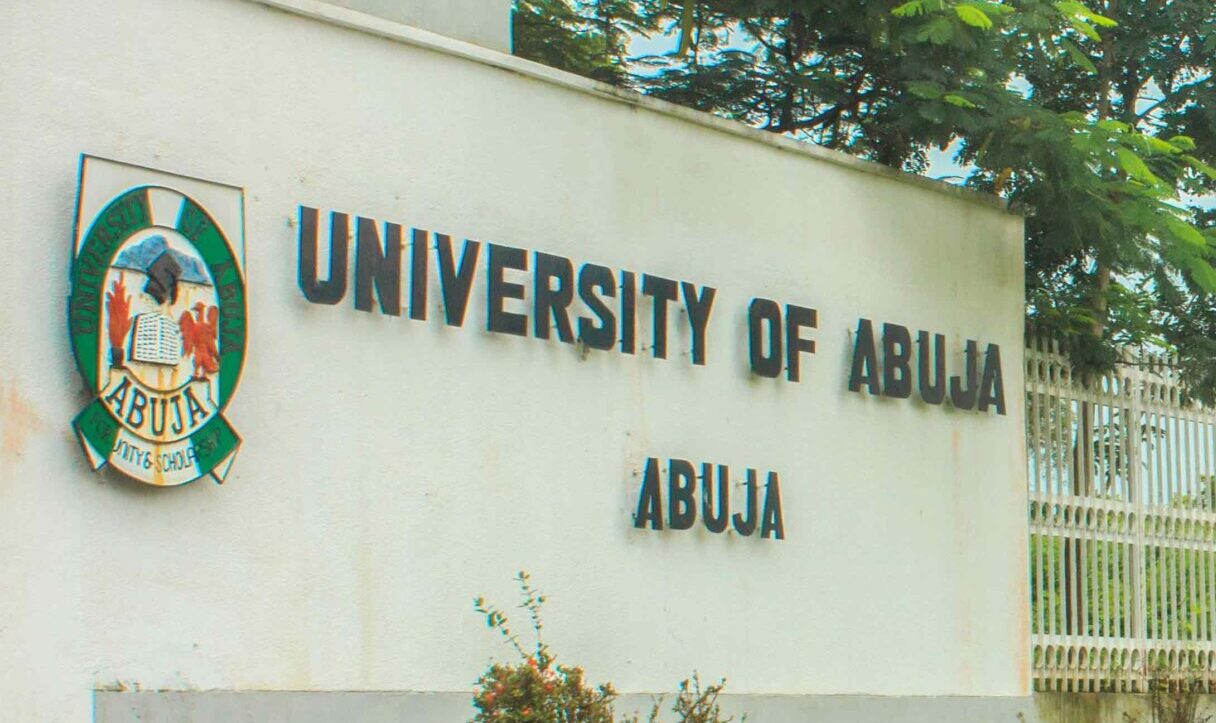
UniAbuja: ASUU declares indefinite strike over disagreement with varsity management
University of Abuja’s branch of the Academic Staff Union of Universities (ASUU) has declared an indefinite strike.
The union announced the decision on Thursday during a congress held at the permanent site of the institution.
A communique issued by the varsity’s branch of the union declared the “total and indefinite strike” over a lingering disagreement with the UniAbuja management.
The issues involve ASUU’s interest in a multi-stakeholder microfinance banking venture; promotion procedures in the absence of a governing council, election for faculty deanship, and alleged illegal appointments.
Abubakar Kari, the UniAbuja student affairs dean and ex-convener of ASUU’s national political committee, confirmed the development.
Education
UTME results not available in paper format – JAMB
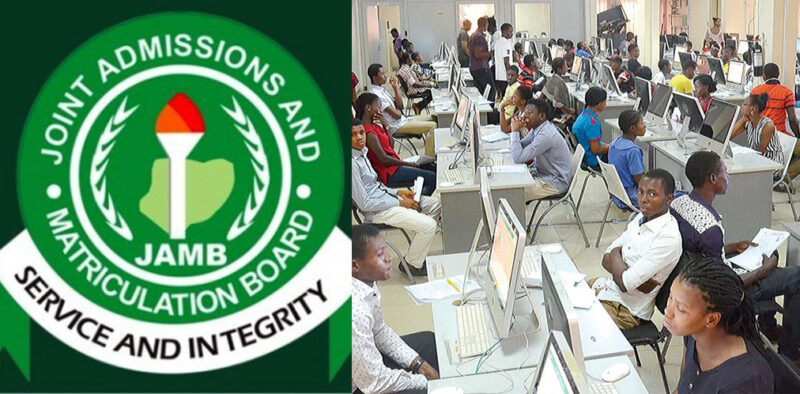
UTME results not available in paper format – JAMB
The Joint Admissions and Matriculation Board has urged Nigerians to be wary of any candidate parading printed result slips as, currently, the results are not in any paper format.
The body also said that, unlike last year, the results cannot be found on the Board’s website at the moment.
JAMB made this known in a statement released by its spokesperson, Dr Fabian Benjamin, on Wednesday.
He stated that the information became necessary as some individuals were already circulating printed result slips on social media.
The statement read, “The Board, once again, wishes to state clearly that the only way to check the 2024 UTME result is to send UTMERESULT to 55019 or 66019 using the same phone used by the candidate in registering for the UTME exercise. Ensure that the SIM is not on any bundle.
READ ALSO:
- Two million bank accounts closed over BVN, NIN, others
- Senate insists on 16 years as requirement for tertiary institution admission in Nigeria
- Minimum wage: Labour threatens nationwide strike by end of May
“This is different from what was obtained last year; hence, the results are not and cannot be found on the Board’s website at the moment.
“Candidates are urged to follow the method specified above to obtain their results. They need not visit any cybercafe or patronise any third-party entity to check their result.
“The public is also advised to be wary of any candidate parading printed result slip as currently; the result is not on any paper format as being circulated on social media by some individuals.
“A reasonable number of candidates have checked their results as seen on our monitoring dashboard but for the few still struggling, please follow the right channel.”
On Monday, the Board announced the release of the 2024 UTME results.
The Registrar, Prof. Ishaq Oloyede, made this known during a press briefing in Bwari, Abuja.
Oloyede also noted that the results of 64,624 out of the 1,904,189 who sat the examination have been withheld by the Board and will be subject to investigation. The Board Registrar noted that though a total of 1,989,668 registered, a total of 80,810 candidates were absent.
UTME results not available in paper format – JAMB
Education
78% of 2024 UTME candidates scored below 200 – JAMB
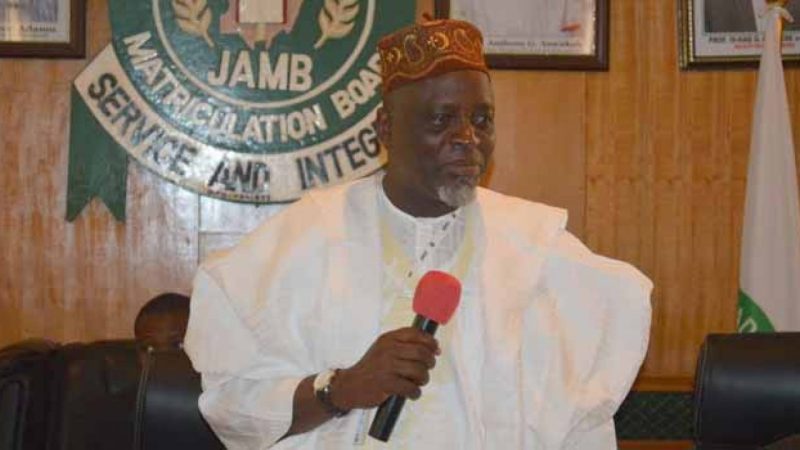
78% of 2024 UTME candidates scored below 200 – JAMB
The Joint Admissions and Matriculation Board, on Monday, released the results of the 2024 Unified Tertiary Matriculation Examination, showing that 1,402,490 candidates out of 1,842,464 failed to score 200 out of 400 marks.
The number of candidates who failed to score half of the possible marks represents 78 per cent of the candidates whose results were released by JAMB.
Giving a breakdown of the results of the 1,842,464 candidates released, the board’s Registrar, Prof. Ishaq Oloyede, noted that, “8,401 candidates scored 300 and above; 77,070 scored 250 and above; 439,974 scored 200 and above while 1,402,490 scored below 200.”
On naming the top scorers for the 2024 UTME, Oloyede said, “It is common knowledge that the board has, at various times restated its unwillingness to publish the names of its best-performing candidates, as it considers its UTME as only a ranking examination on account of the other parameters that would constitute what would later be considered the minimum admissible score for candidates seeking admission to tertiary institutions.
“Similarly, because of the different variables adopted by respective institutions, it might be downright impossible to arrive at a single or all-encompassing set of parameters for generating a list of candidates with the highest admissible score as gaining admission remains the ultimate goal. Hence, it might be unrealistic or presumptive to say a particular candidate is the highest scorer given the fact that such a candidate may, in the final analysis, not even be admitted.
READ ALSO:
- After one-day gain, naira crashes again to N1,340/$ in parallel market
- Ex-Kwara finance commissioner arraigned over alleged N1. 22bn fraud
- Power sector will be grounded without tariff increase – Minister
“However, owing to public demand and to avoid a repeat of the Mmesoma saga as well as provide a guide for those, who may want to award prizes to this set of high-performing candidates, the Board appeals to all concerned to always verify claims by candidates before offering such awards.”
Oloyede also noted that the results of 64,624 out of the 1,904,189, who sat the examination, were withheld by the board and would be subject to investigation.
He noted that though a total of 1,989,668 registered, a total of 80,810 candidates were absent.
“For the 2024 UTME, 1,989,668 candidates registered including those who registered at foreign centres. The Direct Entry registration is still ongoing.
“Out of a total of 1,989,668 registered candidates, 80,810 were absent. A total of 1,904,189 sat the UTME within the six days of the examination.
“The Board is today releasing the results of 1,842,464 candidates. 64,624 results are under investigation for verification, procedural investigation of candidates, Centre-based investigation and alleged examination misconduct.”
Oloyede also said the board, at the moment, conducts examination in nine foreign centres namely: Abidjan, Ivory Coast; Addis Ababa, Ethiopia; Buea, Cameroon; Cotonou, Republic of Benin; London, United Kingdom; Jeddah, Saudi Arabia; and Johannesburg, South Africa.
“The essence of this foreign component of the examination is to market our institutions to the outside world as well as ensuring that our universities reflect the universality of academic traditions, among others. The Board is, currently, fine-tuning arrangements for the conduct of the 2024 UTME in these foreign centres,” he said.
78% of 2024 UTME candidates scored below 200 – JAMB
-

 metro2 days ago
metro2 days agoLabour Day: Nigerian workers are dedicated, resilient, says NURTW leader
-

 Education3 days ago
Education3 days agoBREAKING: JAMB releases 2024 UTME results
-
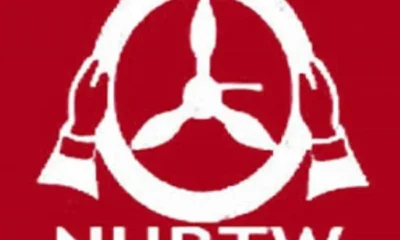
 Auto22 hours ago
Auto22 hours agoAppeal court takes over NURTW case as NIC withdraws
-

 News2 days ago
News2 days agoAmid fuel scarcity, petrol marketers threaten to withdraw services over ₦200bn debt
-
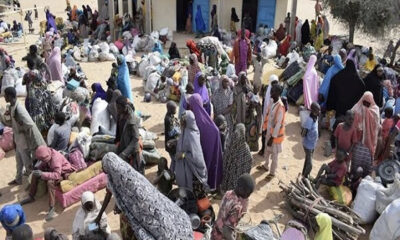
 News2 days ago
News2 days agoFG set to repatriate 20,000 Nigerians from Chad, Cameroon
-

 metro7 hours ago
metro7 hours agoSecurity forces, vigilantes arrest kidnapper terrorising communities in Kogi
-

 Sports3 days ago
Sports3 days agoFinidi George appointed Super Eagles head coach
-
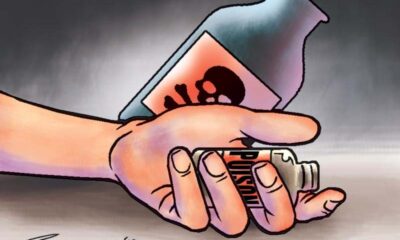
 metro2 days ago
metro2 days agoWoman arrested in Ogun after husband commits suicide





